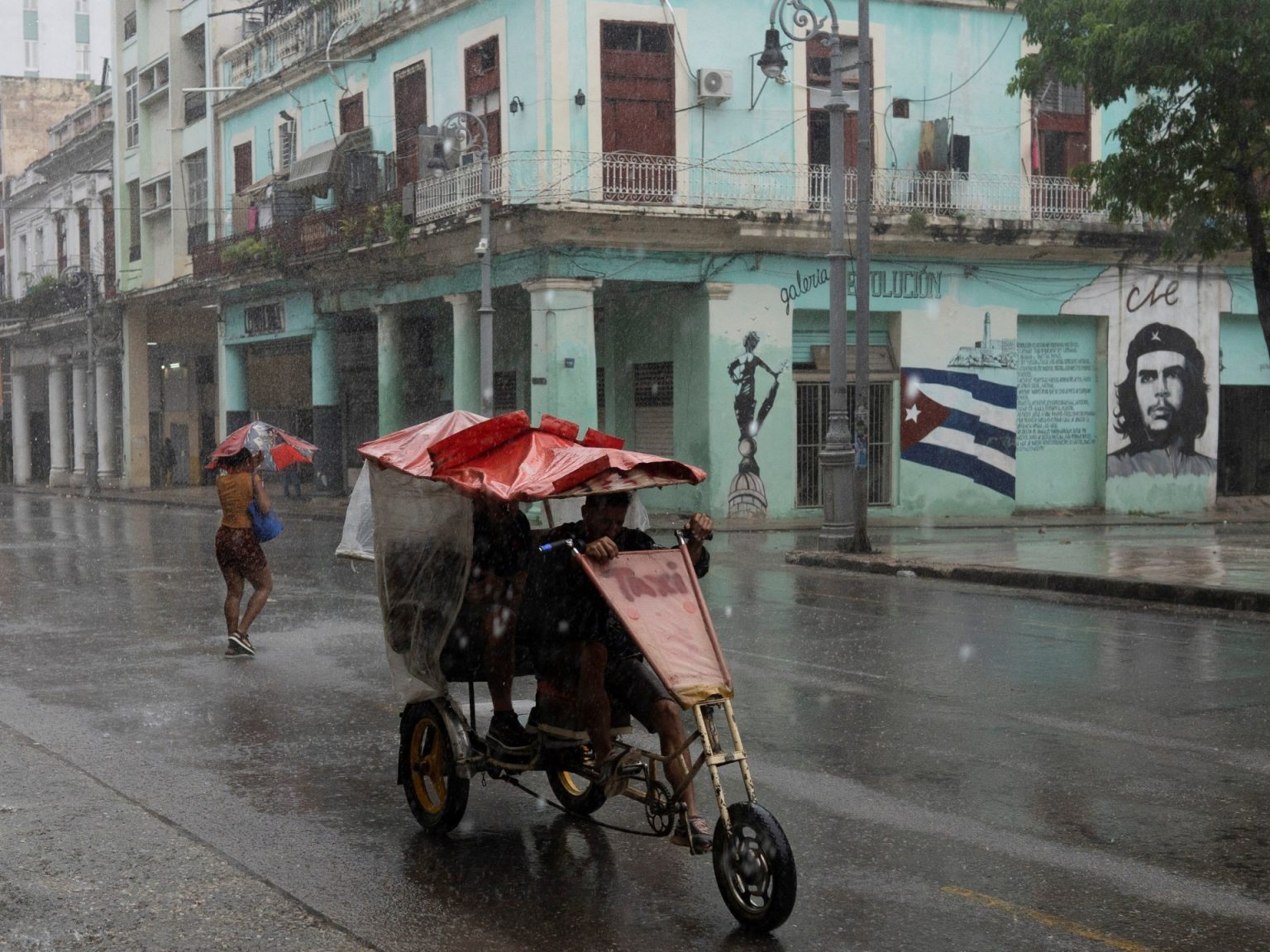Authorities in Cuba are working to restore electricity to the eastern half of the island after Hurricane Rafael caused a complete power outage, affecting 10 million people. The storm brought winds of up to 185 kilometres per hour, damaging homes, uprooting trees, and toppling telephone poles. The Energy and Mines Ministry reported progress in restoring power in some areas but warned that it would take longer in the hardest-hit western parts of the island, including the capital, Havana.
After passing through Cuba, Hurricane Rafael entered the Gulf of Mexico, losing intensity but still posing a threat with its maximum sustained winds of 185 km/h. Forecasters warned of life-threatening storm surges, winds, and flash floods in Cuba, a country prone to bad weather due to its poorly maintained infrastructure. Havana residents emerged to find the streets relatively dry despite the storm’s impact on the tobacco-growing regions of Artemisa and Pinar del Rio.
In response to the storm, farmers protected their crops, and businesses and schools in Havana remained closed while transportation services gradually resumed. Flights were grounded at major airports, and many residents faced challenges due to damaged buildings and infrastructure. President Miguel Diaz-Canel mobilized the military to assist with storm response efforts, reassuring the population that measures were in place to protect people and resources.
Cubans expressed concern over the government’s ability to provide essential services in the wake of the storm, given the country’s economic challenges and limited resources. Many were left homeless or facing food spoilage due to prolonged power outages, with some comparing the situation to a similar outage just weeks earlier. Nevertheless, the government expressed confidence in overcoming the challenges and supporting the population through the difficulties caused by the storm.
Hurricane Rafael is part of a busy hurricane season, with it being the 17th named storm and the eighth major hurricane of Category 3 or stronger in November over the past 60 years. Forecasts predict an above-average hurricane season, with a high number of named storms, hurricanes, and major hurricanes expected. The hurricane season has already seen several major storms, causing significant damage and loss of life in various regions.
Despite the challenges posed by the storm, Cubans are resilient and working together to overcome the aftermath of Hurricane Rafael. The government’s efforts to restore power and provide assistance to those affected are crucial in helping the population recover from the impact of the storm. With the support of the military and solidarity among communities, Cuba will rebuild and recover from the devastation caused by the natural disaster.


